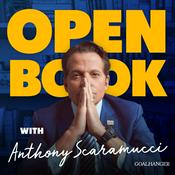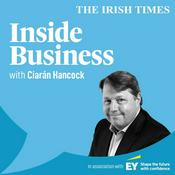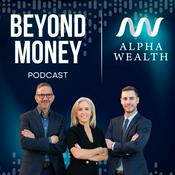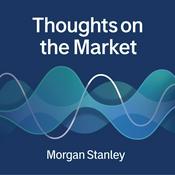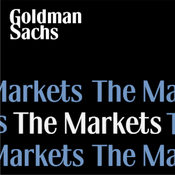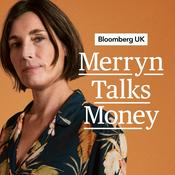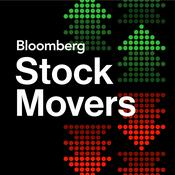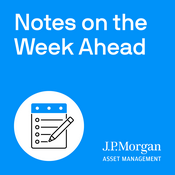190 episodes
Supreme Court special: What the Trump tariffs ruling means for macro and markets
20/2/2026 | 21 mins.The Supreme Court has finally ruled on Donald Trump's tariffs with an opinion that the president has no right to impose tariffs under the International Emergency Economic Powers Act. So what happens now?
Deputy Chief North America Economist Stephen Brown and Deputy Chief Markets Economist Jonas Goltermann join The Weekly Briefing from Capital Economics to discuss the implications of this legal ruling for the US economy, for Federal Reserve policy and for financial markets. In their conversation with David Wilder, Stephen and Jonas address key issues, including:
How the White House could rebuild its tariff regime – and rebuild it quickly
What happens when billions of dollars in tariff refunds flow back into US company accounts
Why signs of resurgent inflationary pressures are narrowing the room for Fed rate cuts
How the bond market is responding to the Supreme Court news
Why the stock market rally has stalled, and whether this news could get it going again.
Related reading
IEEPA ruling unlikely to pull PCE inflation back to 2%
https://www.capitaleconomics.com/publications/us-economics-weekly/ieepa-ruling-unlikely-pull-pce-inflation-back-2
Stock market rotation is a warning of trouble ahead
https://www.capitaleconomics.com/publications/capital-daily/stock-market-rotation-warning-trouble-ahead
SC rules that Trump's IEEPA tariffs are illegal
https://www.capitaleconomics.com/publications/global-economics-rapid-response/sc-rules-trumps-ieepa-tariffs-are-illegal- From the lows of December retail sales to the highs of January payrolls, recent US data has sent mixed signals. But the economy remains in relatively good shape, argues Deputy Chief North America Economist Stephen Brown on the latest episode of the Capital Economics Weekly Briefing. He explores why the idea of a “K-shaped” economy may be overstated, what markets are missing about the productivity growth upturn, and the chances of much lower rates from a Kevin Warsh-led Fed.
Also on the show, as Keir Starmer’s government reels from one of its toughest weeks yet, Deputy Chief UK Economist Ruth Gregory assesses what a change of leadership could mean for the UK economy and financial markets, but also why the long-term growth outlook may not be as bleak as recent headlines suggest.
Related reading:
AI already making a big contribution to US productivity growth
Why we still believe in the AI rally, and the S&P 500
Would a stock market crash cause a global recession?
Can China’s trade surplus rise further?
Get in touch at [email protected] to learn more. Tech sell-off, AI winners and losers, and reasons to be optimistic about productivity
06/2/2026 | 16 mins.In this week’s episode, Neil Shearing talks to Vicky Redwood and John Higgins about a tumultuous week in equity markets, how AI is creating winners and losers, and whether there’s any evidence that AI is starting to lift productivity growth in economies.
AI already making a big contribution to productivity growth
China’s AI rollout could rival the US- This weekend’s Japanese election is shaping up to be one of the most consequential in years. As Sanae Takaichi, newly installed leader of the ruling Liberal Democratic Party, seeks to cement her mandate, government bond yields and the yen have been moving in opposite directions amid headlines warning of plans to open the fiscal floodgates.
But are markets really responding to fears of runaway spending, or to the reality that Japan is finally emerging from decades of deflation?
Capital Economics’ Head of Asia-Pacific, Marcel Thieliant, and Head of Asia-Pacific Markets, Thomas Mathews, join the show to unpack what the return of inflation means for the Japanese economy, for the Bank of Japan, for government bonds and for the outcome of this weekend’s vote.
Also on the show: a new US-India deal to slash eye-watering reciprocal tariff rates is the latest in a flurry of trade agreements from the Modi administration. Shilan Shah, our India research lead, explains what these deals mean for India’s economic outlook – and whether the country can truly wean itself off Russian oil.
Read our key analysis about the return of inflation to Japan's economy.
For Capital Economics clients: Japan Drop-In: Takaichi’s election gamble – Fiscal risks, market consequences - Kevin Warsh has been named Donald Trump’s pick to succeed Jerome Powell as Chair of the Federal Reserve. Group Chief Economist Neil Shearing, Deputy Chief North America Economist Stephen Brown, and Deputy Chief Markets Economist Jonas Goltermann come together for a special episode of The Weekly Briefing to address the key questions raised by this announcement, including:
Whether Warsh would deliver the kind of monetary easing Trump has been calling for;
How Warsh's call to shrink the Fed’s balance sheet would work, and what that could mean for Treasury yields;
The implications for the dollar following an extraordinary week in currency markets.
More Business podcasts
Trending Business podcasts
About The Weekly Briefing from Capital Economics
Capital Economics, a world-leading provider of macroeconomic insight, presents The Weekly Briefing – the show with all you need to know about what's happening in the global economy and markets. From the Fed's next decision to China's slowdown to moves in equities, bonds and FX, each week, our team of economists take apart the big economic and market stories and highlight those issues that investors should be paying more attention to.
Podcast websiteListen to The Weekly Briefing from Capital Economics, Odd Lots and many other podcasts from around the world with the radio.net app

Get the free radio.net app
- Stations and podcasts to bookmark
- Stream via Wi-Fi or Bluetooth
- Supports Carplay & Android Auto
- Many other app features
Get the free radio.net app
- Stations and podcasts to bookmark
- Stream via Wi-Fi or Bluetooth
- Supports Carplay & Android Auto
- Many other app features


The Weekly Briefing from Capital Economics
Scan code,
download the app,
start listening.
download the app,
start listening.








